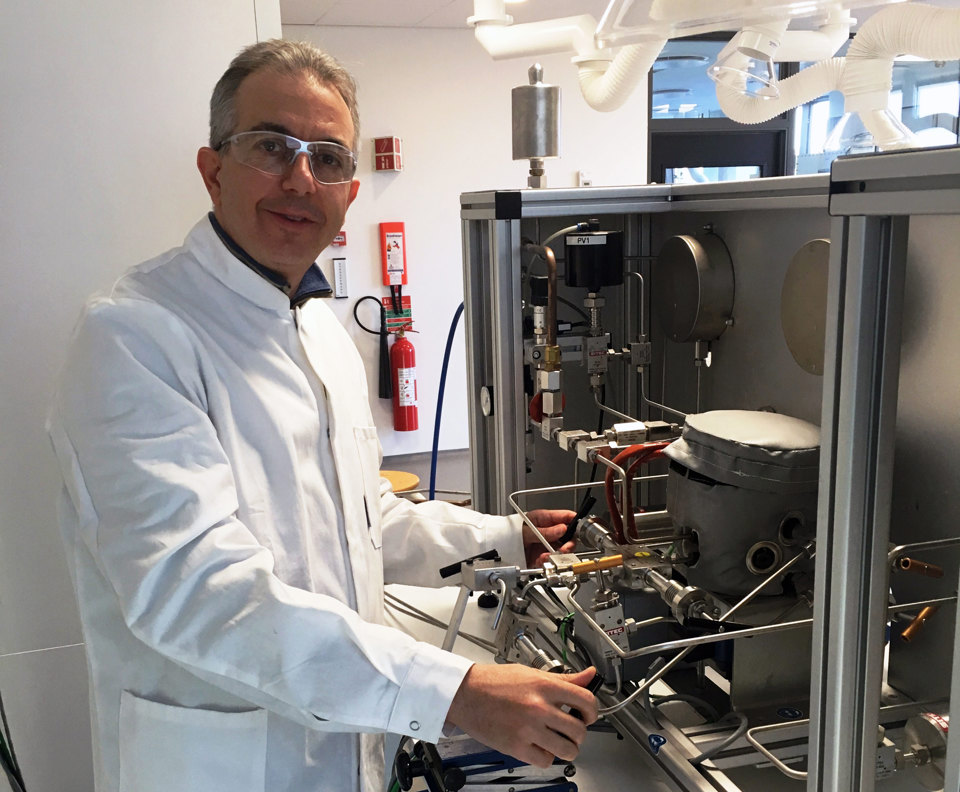Lignin: A revewable source of everyday chemicals
- “I am currently working on a project focusing on converting lignin, a natural biopolymer that is one of the basic structural materials in many plants, into a range of chemicals that are currently being produced from petroleum. Vast amounts of lignin will be available in the future as a by-product of new biomass-based processes, but at the moment this by-product is under-utilised. It has, however, the potential of being converted into value-added products. This by-product is typically made available either dispersed in water or wet, and therefore it is particularly convenient to develop chemical processes that can convert it operating in water, so as to avoid the energy cost of drying” Marco Maschietti explains.
- “Our work focuses on finding new ways of converting lignin in water at very high pressure and high temperature, maybe between 150 and 400 degrees Celsius, but keeping the water in its liquid state because of the high pressure. We are in essence cooking the lignin to break it into smaller atoms, and when we dissolve lignin in water at these high temperatures, the structure of the polymer breaks and we get many small molecules. In addition, the process happens very fast under these conditions, and depending on the exact pressure and temperature settings, as well as which catalysts we add to the process, we can produce a range of very valuable chemicals from the lignin” he adds. Historically, the production of vanillin, which we know from our everyday lives in the shape of vanilla aroma in products like ice cream, is the only lignin-to-chemical process that has reached commercialisation, but there is a great potential for producing a much wider range of chemicals, including building blocks for chemical products currently produced from petroleum, fuel additives, disinfectants, fragrances, etc. By producing these from a renewable source instead of from petroleum, the production will be much more sustainable and environmentally friendly. At the same time, the biomass used in bio-refineries can be utilised to an even higher degree than it is now.
- “The major advantage of using lignin as a source of these chemicals instead of petroleum is that we have access to enormous amounts of lignin from sustainable and renewable sources. It is created as a by-product from biomass in bio-refineries, but the lignin is usually just burned to produce energy. However, there is a shared consensus among researchers that if the biomass and bio-refinery industry is to be more profitable and competitive, we need to do something with the lignin too; something that will give it a much higher value than just burning it to produce energy” Marco Maschietti says.
A revolution of the chemical industry
In order to study and refine the conversion of lignin, Marco Maschietti has collaborated with a specialist company to develop the design for a custom-made high-pressure, high-temperature chemical reactor. This new reactor is now available in the laboratories of the Section of Chemical Engineering in Esbjerg and here, Marco Maschietti can try out various combinations of pressure, temperature, catalysts and solvents at a higher level of accuracy compared to typical serial reactors commercialised for laboratory use. The new reactor thus allows for higher accuracy and results which are closer to those that could be obtained at pilot scale, and therefore more reliable.

